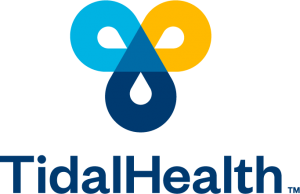
Salisbury, MD – The Maryland Institute for Emergency Medical Services Systems (MIEMSS) recently completed its review and consideration of TidalHealth Peninsula Regional as a Cardiac Interventional Center.
MIEMSS found substantial compliance with the required standards and has re-designated TidalHealth Peninsula Regional as a cardiac interventional center (CIC) for the next five years. This designation was first received April 1, 2011, and TidalHealth Peninsula Regional has continuously held it ever since.
The CIC designation means TidalHealth Peninsula Regional is available to the public 24 hours per day, seven days per week with the required equipment and supplies and is staffed with qualified clinicians and team members to serve the needs of patients with acute ST-elevated myocardial infarction (heart attack) or STEMI.
“It takes coordination among all the team members involved in the care of the patient having a heart attack to achieve the best clinical outcome,” said Joseph Cinderella, MD, Cardiac Catheterization Lab Medical Director at TidalHealth. “It has been established that the sooner a heart attack patient is treated to relieve the blockage causing the STEMI, the better the heart muscle will recover resulting in fewer complications and better overall outcomes for patients.”
When caring for a heart attack patient, time is muscle.
“The entire team involved in caring for STEMI patients is very proud to continue holding this designation in meeting and in some incidences, exceeding the standards set by the State of Maryland,” said Jeanne Ruff, Senior Executive Director of the Guerrieri Heart & Vascular Institute at the Salisbury hospital. “This CIC validates the quality heart care provided to our community.”
The MIEMSS team that surveyed the Salisbury hospital May 30 found that TidalHealth Peninsula Regional has continuously worked to develop and mature its cardiac intervention center at the Guerrier Heart & Vascular Institute. They cited:
- The construction and maintenance of three cardiac catheterization labs.
- The commitment of the team to expand services.
- Long-term investment in continuing the Joint Commission Disease-Specific Certification in Acute Myocardial Infarction.
- The development of a cardiology fellowship program to improve alignment with organizational goals.
- Adaption of best practices for rapid diagnosis and treatment of patients.
- A strong relationship with local EMS.
- Nearly 94% success of door-to-balloon treatment within the important 90-minute window of care.
“TidalHealth, along with local EMS at the immediate point of care, provides high quality care to patients who present with an acute ST-elevation myocardial infarction as evidenced by the recent redesignation as a cardiac interventional center,” said Glenn Hornstein, MD, Emergency Service Associates Medical Director and emergency medicine specialist. “This team and our community should be proud of that continued clinical success.”
A STEMI occurs with an artery that supplies blood to the heart is suddenly blocked. The most common symptoms of a heart attack are discomfort, pressure, or pain in the center of the chest, pain or discomfort in one or both arms, the back, neck, jaw or stomach, shortness of breath, sweating, nausea and lightheadedness.
If any of these symptoms are present, EMS should be called immediately by dialing 9-1-1.


